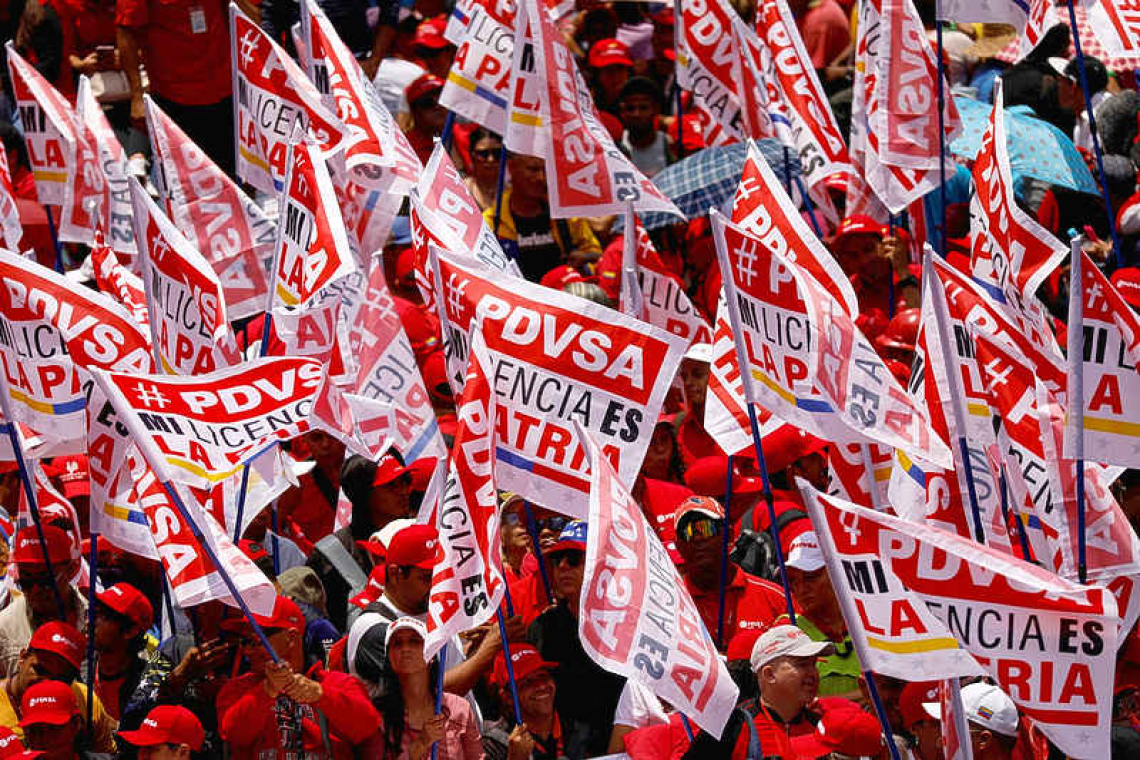Workers of the Venezuelan state oil company PDVSA participate in May Day celebrations in Caracas, Venezuela May 1, 2024.
CARACAS/MARACAY, Venezuela--Over a hundred employees at Venezuela's state oil company PDVSA, plus others in the oil ministry and parts of the public sector, have been forced to resign over their political views since last month's disputed election, workers and unions said.
The government says President Nicolas Maduro won a third term in the July 28 contest, but the opposition says partial vote tallies indicate its candidate Edmundo Gonzalez won a resounding victory.
Top PDVSA executives have instructed administrative and operational workers to attend rallies backing Maduro and supervised their social media accounts, according to four company sources and a union leader. Employees who have not supported Maduro or have disputed the official voting results are being pushed out, they said.
"They call you to human resources, sit you down, and give you a resignation letter you must sign," a source familiar with the situation said. Venezuela's oil ministry and PDVSA did not immediately reply to requests for comment.
The situation could further exacerbate a chronic staffing issue at PDVSA, where a lack of qualified workers has hit many aspects of the company's operations. Its oil output has declined to a fraction of what it was a decade ago.
At PDVSA's headquarters in Caracas, about 100 administrative employees have been pushed out since the election, according to two of the sources. Over 30 others at PDVSA's Eastern division, in charge of most of Venezuela's crude output, have been made to resign, the country's largest oil union said in a statement over the weekend.
"This is political retaliation against numerous workers who in the most recent electoral process have shown themselves against Maduro," union leader Jose Bodas said in the statement. PDVSA has some 90,000 employees, according to figures given this year by its CEO, Pedro Tellechea.
Other public offices have employed a similar crackdown, including several ministries, state power company Corpoelec, state industrial conglomerates and petrochemical firm Pequiven, Caracas' subway system, and public media, according to Bodas, other unions and sources from those entities.







